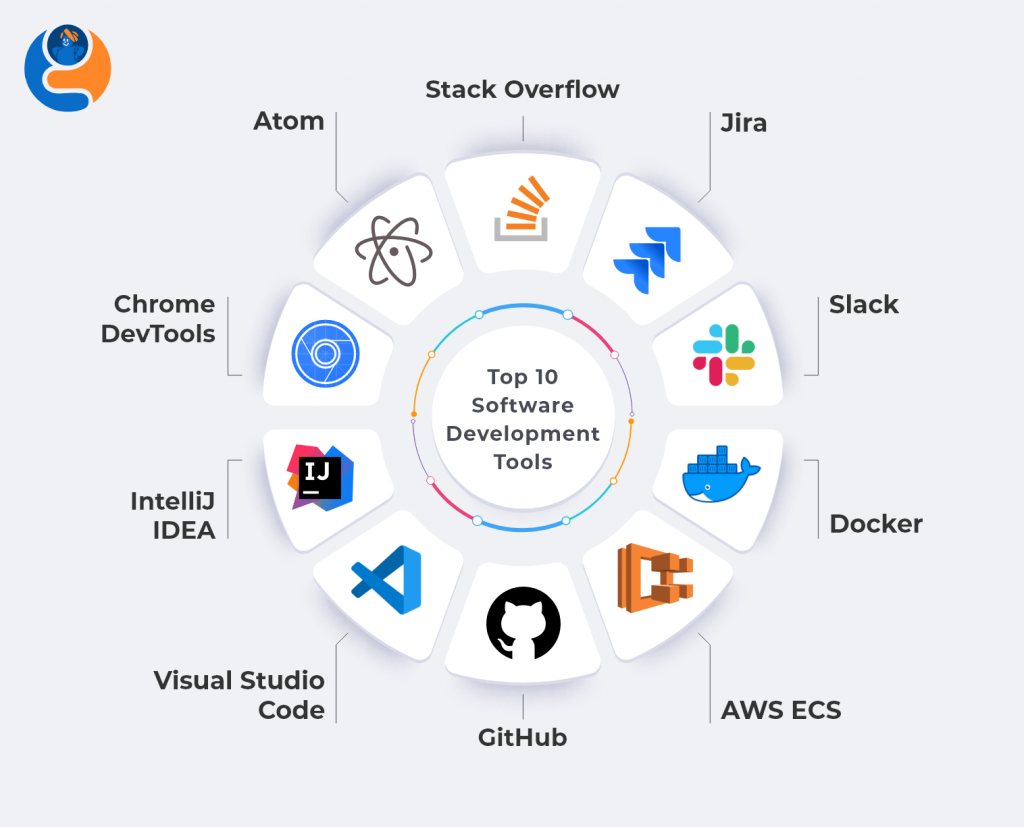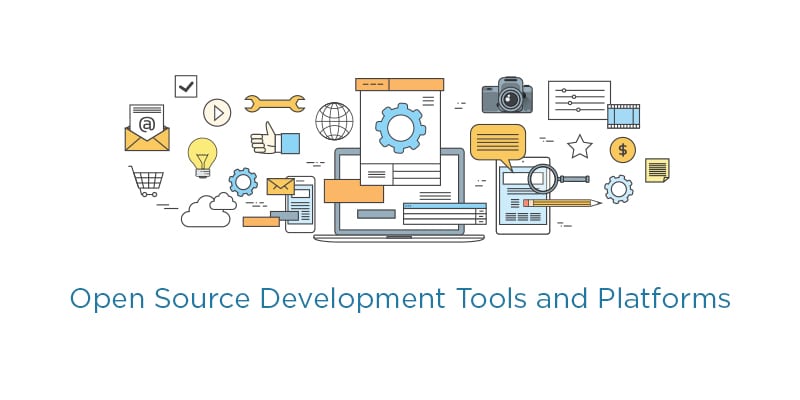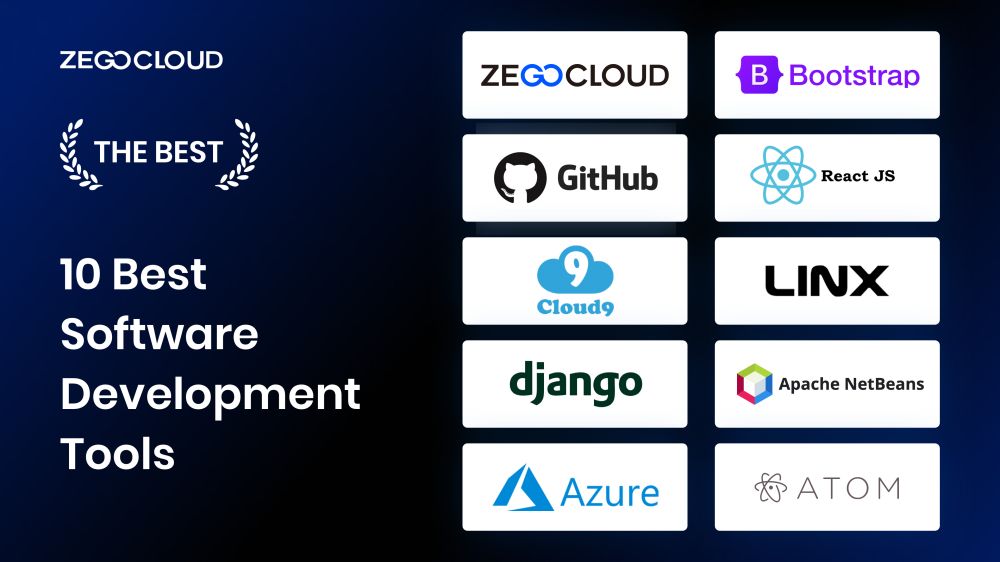Development tools are essential software for creating, debugging, and maintaining applications. They streamline workflows, improve productivity, and enhance code quality.
Development tools play a crucial role in the software development lifecycle. These tools include code editors, compilers, debuggers, and version control systems. They help developers write, test, and deploy code efficiently. Integrated Development Environments (IDEs) like Visual Studio and IntelliJ IDEA offer comprehensive features for coding and debugging.
Version control systems such as Git ensure code integrity and facilitate team collaboration. Debugging tools help identify and fix issues quickly, enhancing software reliability. Utilizing the right development tools can significantly speed up the development process and improve the final product’s quality. Therefore, choosing appropriate development tools is vital for successful software development projects.
Introduction To Modern Development Tools
Modern development tools have revolutionized the way we build software. These tools offer advanced features, streamline workflows, and enhance productivity. Whether you’re a beginner or an expert, modern tools make development easier and faster.
The Evolution Of Development Tools
Development tools have come a long way. In the early days, developers used simple text editors. They had limited features and required manual compilation. Over time, Integrated Development Environments (IDEs) emerged, offering more functionality.
Today’s development tools include:
- Version Control Systems like Git
- Code Editors such as Visual Studio Code
- Build Tools including Webpack and Gulp
These tools integrate seamlessly, providing a more efficient development process.
Why 2024 Is A Game-changer
The year 2024 brings exciting advancements in development tools. Artificial Intelligence (AI) and Machine Learning (ML) are now integral parts of many tools. They offer features like code suggestions and error detection.
Key developments in 2024 include:
| Tool | Feature |
|---|---|
| AI-Powered IDEs | Real-time code optimization |
| Cloud-Based Development | Collaborative coding platforms |
| Enhanced Security Tools | Automated vulnerability scanning |
These innovations ensure faster, safer, and more collaborative development.

Credit: webcodegenie.com
Ai-powered Development Assistants
AI-powered development assistants are transforming the software development landscape. These tools help developers code faster and more accurately. They use artificial intelligence to understand and predict coding needs.
Enhancing Coding Efficiency
AI assistants suggest code snippets based on the current context. This helps developers write code quickly. They can also autocomplete code, saving valuable time. With these tools, developers can focus on complex tasks.
Some popular AI tools include:
- GitHub Copilot: Autocompletes code and suggests improvements.
- TabNine: Offers intelligent code completions across multiple languages.
- Kite: Uses machine learning to suggest relevant code snippets.
Reducing Errors And Debugging Time
AI-powered tools identify potential errors before they occur. They analyze code in real-time and highlight issues. This proactive approach reduces debugging time significantly.
Benefits of using AI for error reduction:
| Benefit | Description |
|---|---|
| Error Detection | Finds syntax and logical errors quickly. |
| Code Reviews | Automates code review processes for better accuracy. |
| Debugging Assistance | Provides solutions to fix identified issues. |
By reducing errors and debugging time, developers can deliver high-quality software faster.
Integrated Development Environments (ides)
Integrated Development Environments, or IDEs, are powerful tools. They help developers write and manage code efficiently. These tools combine multiple features in one place. They include code editors, debuggers, and compilers. IDEs make coding faster and easier.
Top Ides In 2024
Here are some of the best IDEs for 2024:
| IDE Name | Description | Supported Languages |
|---|---|---|
| Visual Studio Code | Lightweight, powerful, and customizable. | JavaScript, Python, C++, and more. |
| IntelliJ IDEA | Great for Java and JVM languages. | Java, Kotlin, Groovy, and more. |
| PyCharm | Best for Python development. | Python, JavaScript, TypeScript, and more. |
| Eclipse | Versatile and feature-rich. | Java, C++, PHP, and more. |
| Xcode | Essential for Apple development. | Swift, Objective-C, and more. |
Features That Stand Out
Modern IDEs come with many useful features:
- Code Completion: Suggests code snippets as you type.
- Debugging Tools: Helps find and fix errors quickly.
- Version Control: Integrates with Git and other systems.
- Customizable Interface: Tailor the look and feel to your needs.
- Integrated Terminal: Access command line tools within the IDE.
IDEs offer many other features. They help developers save time. They make coding more efficient and enjoyable.
Version Control Systems
Version Control Systems are essential in modern software development. They help track and manage changes to code. This ensures that developers can collaborate efficiently. It’s a must-have tool for any development project.
Collaborative Coding
Collaborative coding is easier with version control systems. These tools allow multiple developers to work on the same project. Changes from different team members are merged seamlessly. This reduces conflicts and enhances productivity.
- Developers can work on different features simultaneously.
- Code changes are tracked and can be reverted if needed.
- Teams can review and comment on code changes.
- Helps in maintaining a clean and organized codebase.
Popular Version Control Tools
There are several popular version control tools available. Each has unique features and benefits. Here are some of the most widely used ones:
| Tool | Description |
|---|---|
| Git | Git is a distributed version control system. It is fast, scalable, and open-source. |
| Subversion (SVN) | SVN is a centralized version control system. It is known for its simplicity and reliability. |
| Mercurial | Mercurial is another distributed version control system. It is easy to learn and use. |
| Perforce | Perforce is a powerful tool for large-scale projects. It is popular in industries like gaming and finance. |
Choosing the right tool depends on your project needs. Git is popular for open-source projects. SVN is often used in enterprise environments. Mercurial and Perforce have their own niche uses.
Continuous Integration And Continuous Deployment (ci/cd)
Continuous Integration and Continuous Deployment (CI/CD) are key practices in modern software development. They help automate the deployment process and ensure consistent software releases. These practices save time and reduce errors, making the development cycle more efficient.
Streamlining Deployment
CI/CD tools help in streamlining deployment by automating many steps. Developers can commit code changes frequently. The system automatically tests and integrates these changes. This reduces manual tasks and speeds up the deployment process.
- Automated testing ensures code quality.
- Continuous integration checks for conflicts.
- Continuous deployment updates the application automatically.
These tools also provide real-time feedback. Developers can quickly identify and fix issues. This leads to a more stable and reliable software product.
Best Ci/cd Practices
Implementing best practices in CI/CD can maximize its benefits. Here are some key practices to follow:
- Commit code frequently: Small, frequent commits make integration easier.
- Automate tests: Ensure all code passes automated tests before deployment.
- Use staging environments: Test changes in a staging environment before production.
- Monitor performance: Use monitoring tools to track the performance of deployed applications.
Following these practices improves code quality and deployment efficiency. They help in catching bugs early and ensuring a smooth deployment process.
| Practice | Benefit |
|---|---|
| Frequent Commits | Easy integration |
| Automated Tests | Ensures code quality |
| Staging Environment | Safe testing |
| Performance Monitoring | Tracks application performance |
By adopting these best practices, teams can achieve a more efficient and reliable CI/CD process. This leads to faster and more successful software deployments.

Credit: solutionsreview.com
Containerization And Virtualization
Containerization and virtualization are game-changers in software development. They help developers create, test, and deploy apps faster. These technologies improve efficiency and scalability. Let’s dive into the details.
Docker And Kubernetes
Docker is a tool that uses containers to run applications. Kubernetes manages these containers, making them easy to deploy and scale. Both tools offer many features that streamline development.
Docker packages applications into containers. These containers run consistently on any environment. Kubernetes orchestrates these containers. It handles their deployment, scaling, and operations.
Benefits For Development
Containerization and virtualization offer several benefits for developers. Here are the key advantages:
- Portability: Containers can run on any platform without changes.
- Scalability: Easily scale your applications with Kubernetes.
- Isolation: Each container runs in its own environment.
- Resource Efficiency: Containers use fewer resources than virtual machines.
- Consistency: Ensure the same environment across development, testing, and production.
These benefits make containerization and virtualization essential tools. They are crucial for modern development practices.
Devops Tools
DevOps tools help teams automate tasks and monitor applications. These tools improve collaboration between development and operations teams. They ensure faster delivery and higher quality of software products.
Automation And Monitoring
Automation is key in DevOps. It reduces manual tasks and errors. With automation, teams can deploy code faster and more reliably. Monitoring is crucial for maintaining application health. It helps identify issues quickly and ensures everything runs smoothly.
Popular automation tools include Jenkins and Travis CI. Monitoring tools like Nagios and Prometheus track system performance. Together, they create a seamless DevOps workflow.
Popular Devops Tools
Here are some widely used DevOps tools:
| Tool | Purpose |
|---|---|
| Jenkins | Continuous Integration and Delivery |
| Docker | Containerization |
| Kubernetes | Container Orchestration |
| Ansible | Configuration Management |
| Nagios | Monitoring |
| Prometheus | Monitoring and Alerting |
These tools are essential for any DevOps team. They help automate processes and monitor applications effectively.
Future Trends In Development Tools
Development tools are evolving rapidly. The industry is always on the move. Staying updated with future trends is crucial for developers. This section dives into what the future holds.
Predictions For 2025
By 2025, Artificial Intelligence (AI) will transform development tools. AI will automate many coding tasks. This will save time and reduce errors. Machine Learning (ML) will also play a significant role. ML will help in predicting bugs before they occur.
Cloud-based development tools will gain more popularity. They offer flexibility and scalability. Developers will collaborate more easily across different locations. Augmented Reality (AR) and Virtual Reality (VR) will become mainstream. These technologies will enhance user experience and interaction.
| Trend | Impact |
|---|---|
| AI in Development | Automates coding, reduces errors |
| ML for Bug Prediction | Predicts bugs, improves code quality |
| Cloud-based Tools | Enhances collaboration, flexibility |
| AR and VR | Improves user experience |
Preparing For The Future
To prepare for the future, developers need to stay updated. Learning new technologies is crucial. Enroll in courses on AI and ML. Experiment with cloud-based tools. Use them in your projects.
Join developer communities. Share knowledge and learn from others. Attend tech conferences. Stay informed about the latest trends.
- Stay updated with new technologies
- Experiment with cloud-based tools
- Join developer communities
- Attend tech conferences

Credit: www.zegocloud.com
Frequently Asked Questions
What Are Development Tools?
Development tools are software applications that assist developers in creating, debugging, and maintaining code. They include IDEs, version control systems, and testing tools. These tools enhance productivity and code quality.
Why Use Version Control Systems?
Version control systems track changes in code, allowing collaboration and rollback capabilities. They prevent code conflicts and data loss. Popular systems include Git and SVN.
Which Ide Is Best For Beginners?
For beginners, Visual Studio Code is highly recommended. It is free, user-friendly, and supports multiple languages. It also has a vast library of extensions.
What Is Continuous Integration?
Continuous integration is a development practice where code changes are automatically tested and integrated. It helps catch issues early and improves software quality. Popular tools include Jenkins and Travis CI.
Conclusion
Choosing the right development tools can enhance productivity and streamline workflows. They provide essential features that simplify tasks. Invest time in exploring different tools to find the best fit. Stay updated with the latest developments to remain competitive. With the right tools, success in development becomes more attainable.




